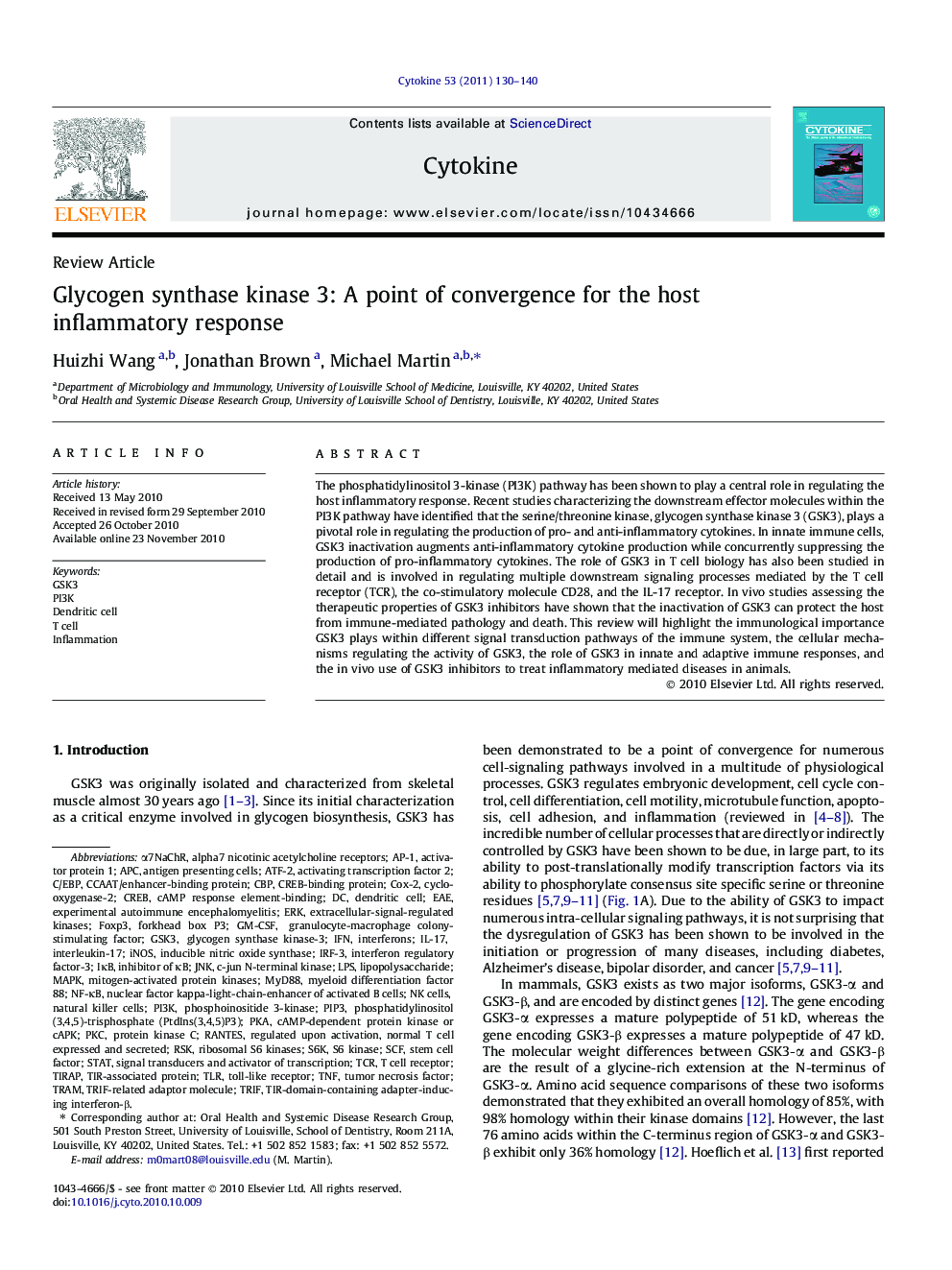| Article ID | Journal | Published Year | Pages | File Type |
|---|---|---|---|---|
| 2794807 | Cytokine | 2011 | 11 Pages |
The phosphatidylinositol 3-kinase (PI3K) pathway has been shown to play a central role in regulating the host inflammatory response. Recent studies characterizing the downstream effector molecules within the PI3K pathway have identified that the serine/threonine kinase, glycogen synthase kinase 3 (GSK3), plays a pivotal role in regulating the production of pro- and anti-inflammatory cytokines. In innate immune cells, GSK3 inactivation augments anti-inflammatory cytokine production while concurrently suppressing the production of pro-inflammatory cytokines. The role of GSK3 in T cell biology has also been studied in detail and is involved in regulating multiple downstream signaling processes mediated by the T cell receptor (TCR), the co-stimulatory molecule CD28, and the IL-17 receptor. In vivo studies assessing the therapeutic properties of GSK3 inhibitors have shown that the inactivation of GSK3 can protect the host from immune-mediated pathology and death. This review will highlight the immunological importance GSK3 plays within different signal transduction pathways of the immune system, the cellular mechanisms regulating the activity of GSK3, the role of GSK3 in innate and adaptive immune responses, and the in vivo use of GSK3 inhibitors to treat inflammatory mediated diseases in animals.
